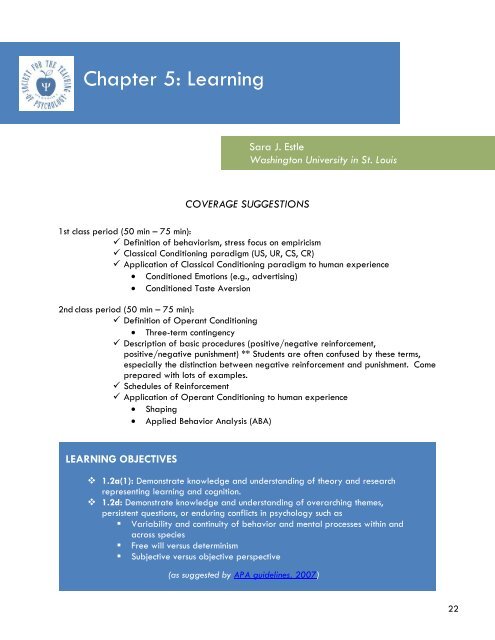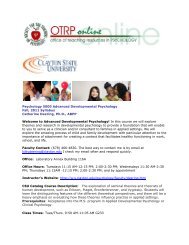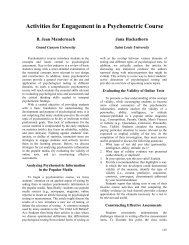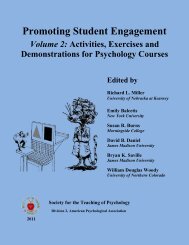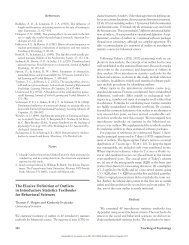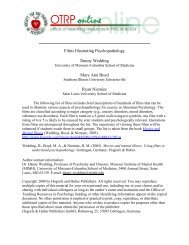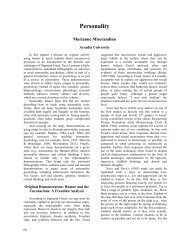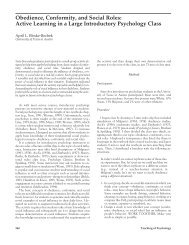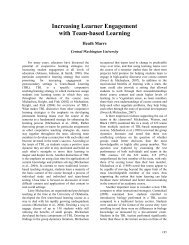INTRODUCTORY PSYCHOLOGY TEACHING PRIMER Early Career ...
INTRODUCTORY PSYCHOLOGY TEACHING PRIMER Early Career ...
INTRODUCTORY PSYCHOLOGY TEACHING PRIMER Early Career ...
You also want an ePaper? Increase the reach of your titles
YUMPU automatically turns print PDFs into web optimized ePapers that Google loves.
Chapter 5: Learning<br />
COVERAGE SUGGESTIONS<br />
1st class period (50 min – 75 min):<br />
Definition of behaviorism, stress focus on empiricism<br />
Classical Conditioning paradigm (US, UR, CS, CR)<br />
Application of Classical Conditioning paradigm to human experience<br />
• Conditioned Emotions (e.g., advertising)<br />
• Conditioned Taste Aversion<br />
2nd class period (50 min – 75 min):<br />
Definition of Operant Conditioning<br />
• Three-term contingency<br />
Description of basic procedures (positive/negative reinforcement,<br />
positive/negative punishment) ** Students are often confused by these terms,<br />
especially the distinction between negative reinforcement and punishment. Come<br />
prepared with lots of examples.<br />
Schedules of Reinforcement<br />
Application of Operant Conditioning to human experience<br />
• Shaping<br />
• Applied Behavior Analysis (ABA)<br />
LEARNING OBJECTIVES<br />
Sara J. Estle<br />
Washington University in St. Louis<br />
1.2a(1): Demonstrate knowledge and understanding of theory and research<br />
representing learning and cognition.<br />
1.2d: Demonstrate knowledge and understanding of overarching themes,<br />
persistent questions, or enduring conflicts in psychology such as<br />
Variability and continuity of behavior and mental processes within and<br />
across species<br />
Free will versus determinism<br />
Subjective versus objective perspective<br />
(as suggested by APA guidelines, 2007)<br />
22


